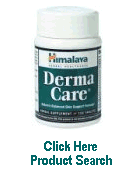|
Health Categories

Acne
Allergy
Asthma
Back Pains
Bronchitis
Cancer Treatments
Colds Supplements
Constipation
Depression
Diabetes
Diarrhea
Eczema
Emphysema
Endometriosis
Erectile Dysfunction
Fibroids
Fibromyalgia
Flatulence
Flu
Fungal Infection
Gallstone
Glaucoma
Hay Fever
Headache
Heartburn
Heart Disease
Hemorrhoids
Hepatitis
High Blood Pressure
High Cholesterol
Hyperthyrodism
Incontinence
Indigestion
Insomia
Jet Lag
Kidney Stones
Lactose Intolerance
Macular Degeneration
Menopause
Menstrual Cramps
Migrain
Muscle Soreness
Nausea and Vomiting
Osteoarthritis
Osteoporosis
Overweight
Prostate Enlargement
Psoriasis
Raynaud's Syndrome
Sinus Infection
Smoking
Stress
Stroke
Ulcers
Urinary Tract Infection
Varicose Veins
Warts
Wounds
Yeast Infection

Webmaster Resource
About Us
Contact Us
Terms & Conditions
Site Map


Acne
Asthma
Cong Heart Failure
Diabetes
Headache
High Blood Pressure
Osteoporosis
|
|
 |
| Home Remedy |
| |
- Brush your teeth after you eat. Keep a toothbrush at work to brush after eating.
- Floss at least once a day. Proper flossing removes food particles and plaque from between your teeth.
- Brush your tongue. Giving your tongue a good brushing removes dead cells, bacteria and food debris. Use a soft-bristled toothbrush and brush your tongue with at least five to 15 strokes. Pay particular attention to the middle third of the tongue, where most of the bacteria tend to collect.
- Clean your dentures well. If you wear a bridge or a partial or complete denture, clean it thoroughly at least once a day or as directed by your dentist.
- Drink plenty of water. To keep your mouth moist, be sure to consume plenty of water — not coffee, soft drinks or alcohol. Chewing gum (preferably sugarless) or sucking on candy (preferably sugarless) also stimulates saliva, washing away food particles and bacteria. If you have chronic dry mouth, your dentist or doctor may additionally prescribe an artificial saliva preparation or an oral medication that stimulates the flow of saliva.
- Use a fairly new toothbrush. Change your toothbrush every three to four months, and choose a soft-bristled toothbrush.
- Schedule regular dental checkups. At least twice a year, see your dentist to have your teeth or dentures examined and cleaned.
- Suck on chewing gums and candies. Chewing gums and candies promotes salivation. Salivation eliminates bad breath.
- Stop smoking and stop drinking alcohol
 |
| Nutrition |
| |
Some foods are notorious for causing bad breath; this includes coffee, alcohol, some cheeses, garlic, onions, leeks, shallots and chives. Meats-especially pastrami, salami and pepperoni contains sulfur compounds that cause bad breath. When these foods are consumed, odor does not only emanates from your mouth but also from your lungs. As these foods are digested and distributed by your blood to your lungs, the malodorous sulfur compounds are exhaled. So if you are more concerned about your bad breath, keep away from such foods, and eat more vegetables.
Drink a lot of water, water washes down your mouth and hydrates your mouth tissues. This also stimulates saliva flow. Dryness of the mouth is the primary cause of bad breath.
 |
| Herbal Medicine |
| |
Chew on parsley, basil, and cilantro. Do you ever wonder why chefs garnish entrees with a sprig of parsley? This is just a perpetuation of the ancient Roman practice of chewing parsley after meals. Parsley is rich in chlorophyll, a potent breath-freshener, so as basil and cilantro.
Cincole is a potent antibacterial antiseptic found in several medicinal herbs. Among these herbs are ginger, cardamom, spearmint, peppermint, eucalyptus, rosemary, and sweet annie. You can chew on the leaves or make a tea preparation for drinking. Boil for 10 minutes 1 to 2 teaspoon of herbs in 1-cup water, allow to steep then taste before drinking.
Thyme is another antibacterial herb because of its oil that contains thymol. Chew on the leaves or drink as tea.
 |
| Chinese Medicine |
| |
For Chinese medicine, bad breath is attributed to excessive Heat in the Stomach. For treatment, intake cooling foods such as cucumber, peppermint tea and tomatoes. Avoid “hot” foods such as coffee, alcohol and spicy dishes.
 |
| Ayurvedic Medicine |
| |
Ayurvedic physicians suggest chewing fennel seeds instead of mints after eating to freshen your breath.
 |
| Naturopathy |
| |
Naturopathy believes that bad breath is caused by poor digestion of food. Naturopaths suggest to eat more of foods rich in fibers and low in fat. Consume more grains, fruits and vegetables to keep your digestion system functioning properly.
 |
| Medical Measures |
| |
Most people can prevent or improve bad breath by practicing proper dental hygiene and following those that are suggested above. If bad breath persists despite self-care, see your dentist. If the cause isn't dental, see your doctor to determine a possible medical cause. You may need a physical examination and testing to pinpoint the underlying cause.
|
|

EditRegion7

Sponsored Links:
|